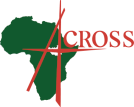Access to Education: Empowering girls and fostering social change.
Since attaining independence, millions of people have been displaced by both violent conflicts and natural calamities in South Sudan. Unfortunately, there has been a decline in children’s rights, which has resulted in child marriages—a practice that is still widespread in South Sudan. According to the most recent statistics, 52% of females get married before turning 18, with some getting married at the age of 12. Adolescent pregnancy poses a serious threat to the health of young girls and women as well as to their ability to participate in society, the economy, and politics. According to cultural customs, a youngster is deemed capable of getting married when she begins to menstruate or receive her period. Furthermore, 28% of young girls who get married get pregnant before they even reach adulthood.
One of the most crucial life events for a woman is becoming a mother. However, early motherhood brought about by teenage pregnancy has had a profound impact on adolescent girls as well as their spouse, family, school, and the larger society. Teenage moms deal with a variety of issues on a physical, psychological, social, and spiritual level. Mental health issues include loneliness, depression, anxiety, shock, and low self-efficacy.
Adolescent mothers must manage the demanding responsibilities of adolescence and the responsibility of motherhood at the same time. Most teenagers are not prepared for this. The majority of adolescent mothers who attend school are often unmotivated, lack self-worth, and struggle with time management.
In order to combat forced and early marriage, ACROSS has taught over 62 school mothers since 2012 to fight for girls’ education both in the classroom and in the community in over 25 schools in Rumbek. The girls have received training in community managed macro-finance (CMMMF), which allows them to create their own income through saving and lending activities for the maintenance of themselves and their children, as well as training in creating homemade sanitary pads to stay in school throughout their menstrual periods. To help pay for their school costs, the girls volunteer at school.

Despite all the assistance provided to the girls to stay in school, they still face transportation issues because of the distances they must travel to get there. Some mothers’ walk to school is close to 5 to 10 kilometers. ACROSS gave 37 bicycles to the school mothers from 18 primary schools that included: Abinikuac primary, Bar-Alip primary, Aduel primary, Atiabia primary, mathaing-kok primary, Dongic primary, Dhiau-kuei primary, Abundant Life primary, Titalal primary, Ayen Mayar primary, Ajakdut primary, Kolcum primary, Meen primary, Majak-jier primary, Akot primary, Joklei primary, Abeer primary, and Abarkou primary school in an effort to help the girls stay in school and finish their primary education and to stop other tragedies from befalling them on their way to school. The bicycles will also be useful for a variety of other tasks, such collecting water from far-off wells or water points, which are risk areas for girls who may become victims of rape or defilement.
